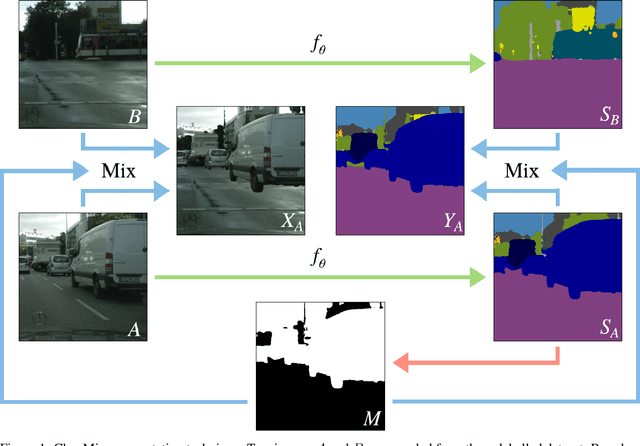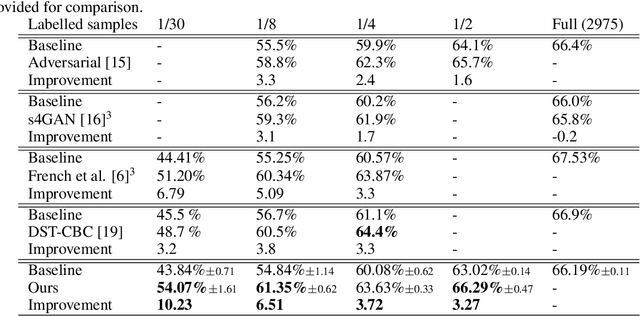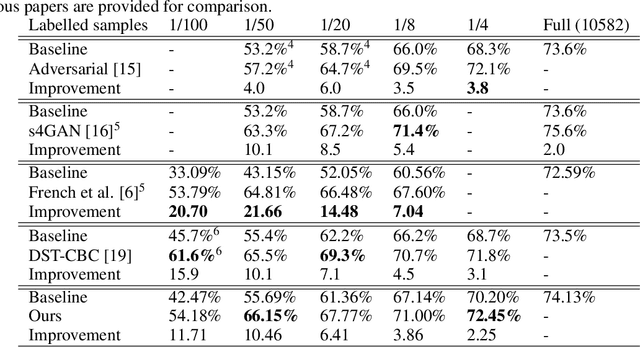ClassMix: Segmentation-Based Data Augmentation for Semi-Supervised Learning
Paper and Code
Jul 15, 2020



The state of the art in semantic segmentation is steadily increasing in performance, resulting in more precise and reliable segmentations in many different applications. However, progress is limited by the cost of generating labels for training, which sometimes requires hours of manual labor for a single image. Because of this, semi-supervised methods have been applied to this task, with varying degrees of success. A key challenge is that common augmentations used in semi-supervised classification are less effective for semantic segmentation. We propose a novel data augmentation mechanism called ClassMix, which generates augmentations by mixing unlabelled samples, by leveraging on the network's predictions for respecting object boundaries. We evaluate this augmentation technique on two common semi-supervised semantic segmentation benchmarks, showing that it attains state-of-the-art results. Lastly, we also provide extensive ablation studies comparing different design decisions and training regimes.
 Add to Chrome
Add to Chrome Add to Firefox
Add to Firefox Add to Edge
Add to Edge